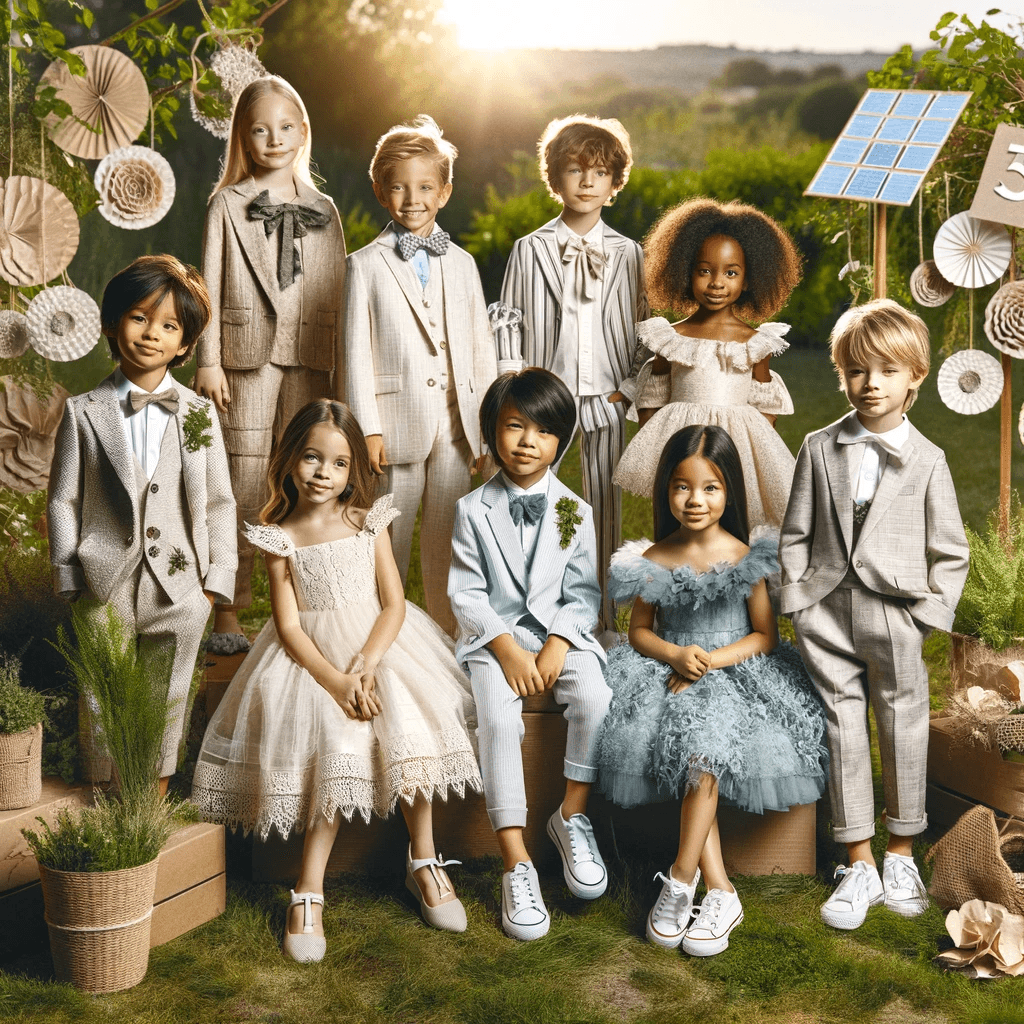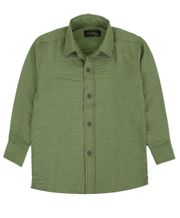
Sustainable and Eco-Friendly Formal Wear: The Future of Fashion
As the fashion world evolves, a significant and transformative trend is emerging: sustainable and eco-friendly formal wear. This shift is not just about style; it's a movement towards environmental responsibility and ethical manufacturing practices. In this blog, we will explore the rise of sustainable fashion in formal wear, examining how it's changing the industry and why it's essential for the future. From innovative materials to ethical production methods, join us in discovering how sustainable fashion is making a profound impact on the world of formal attire.
The Rise of Eco-Friendly Fashion
In recent years, there has been a significant shift in the fashion industry towards sustainability and eco-friendly practices. This transformation can be attributed to several factors, including increased consumer awareness, environmental concerns, and the desire for a more responsible and ethical fashion ecosystem. The rise of eco-friendly fashion represents a fundamental change in the industry, as both consumers and fashion brands recognize the need to reduce their environmental footprint and address social issues related to clothing production. One of the driving forces behind the rise of eco-friendly fashion is the growing awareness among consumers regarding the environmental and social impacts of the fashion industry. Consumers are increasingly seeking out sustainable and ethical alternatives. Fashion brands are now incorporating sustainable materials into their designs. These materials include organic cotton, hemp, bamboo, and recycled fibers. Sustainable textiles not only reduce the environmental impact of clothing production but also promote ethical farming and labor practices. This is offering alternatives to traditional animal-based materials, reducing the need for animal farming and its associated environmental costs.
Eco-friendly fashion brands are committed to ensuring ethical production processes. They prioritize fair wages, safe working conditions, and transparent supply chains. Many companies have adopted certifications like Fair Trade or Global Organic Textile Standard (GOTS) to demonstrate their commitment to ethical production practices. Eco-friendly fashion brands are working to minimize waste throughout the production process. This includes efforts to reduce overproduction, optimize inventory management, and find innovative ways to reuse textile waste. Brands are also exploring zero-waste design techniques to ensure that minimal fabric goes to waste when creating garments. Governments in various countries are starting to enact regulations to encourage sustainable practices in the fashion industry.
Eco-conscious formal wear for special occasions
Why Sustainable Formal Wear Matters? Sustainable formal wear is becoming increasingly important due to a variety of environmental and ethical reasons. This shift towards sustainability in the formal wear industry reflects a broader global movement toward responsible consumption and production practices. Here are some key reasons why sustainable formal wear matters:
a. Resource Efficiency: Traditional formal wear uses resource-intensive materials. Sustainable brands use eco-friendly alternatives like organic cotton, Tencel, and recycled fibers, reducing resource strain.
b. Lower Carbon Footprint: Traditional formal wear production results in high emissions. Sustainable brands prioritize local sourcing and ethical manufacturing, reducing carbon footprints.
c. Reduced Chemical Usage: Conventional production relies on harmful chemicals. Sustainable brands use non-toxic dyes and adhere to strict environmental standards.
d. Waste Reduction: Sustainable formal wear focuses on longevity and minimizes replacements. Zero-waste design and recycling cut textile waste.
e. Social Responsibility: Sustainable brands support artisans, empower communities, and promote traditional craftsmanship.
f. Animal Welfare: Sustainable formal wear avoids animal-derived materials, promoting cruelty-free alternatives.
g. Longevity: Durable, timeless pieces reduce the need for frequent replacements, fostering a sustainable fashion culture.
Materials Revolutionizing Sustainable Formal Fashion
Impact of sustainable practices in the formal wear industry: The fashion industry is continually innovating and exploring new sustainable materials for formal wear to reduce its environmental impact. Here are some of the new sustainable materials that are being used or researched for formal wear:
Recycled Fabrics: Fabrics made from recycled materials, such as recycled polyester or nylon, are increasingly popular in formal wear.
Tencel (Lyocell): Tencel is a sustainable fiber made from wood pulp, often sourced from eucalyptus or beech trees. It is known for its softness, breathability, and biodegradability. Tencel is used in various formal wear garments like dresses and suits.
Organic Cotton: Organic cotton is grown without synthetic pesticides or fertilizers, making it a more environmentally friendly choice compared to conventional cotton. It is used in formal wear, including shirts, blouses, and dresses.
Hemp: Hemp is a durable and sustainable plant-based fabric that requires minimal water and pesticides to grow. It can be blended with other fibers to create formal wear fabrics that are both eco-friendly and stylish.
Piñatex: Piñatex is a sustainable textile made from pineapple leaf fibers. It is cruelty-free, has a unique texture, and is used in accessories like shoes, bags, and formal wear items like suits and dresses.
Peace Silk (Ahimsa Silk): Peace silk is produced without harming the silkworms. Traditional silk production involves boiling silkworms alive, but peace silk allows the silkworms to emerge from their cocoons as moths before harvesting the silk. It is used in formal wear, particularly in silk dresses and blouses.
Econyl: Econyl is a regenerated nylon fabric made from recycled materials, including discarded fishing nets and fabric scraps. It is used for formal wear, including evening gowns and blazers.
Banana Fiber: Banana fiber is derived from the pseudostems of banana plants. It is a biodegradable and renewable material used in formal wear, particularly in eco-friendly suits and dresses.
Lab-Grown Leather: Companies are developing lab-grown leather alternatives that don't involve animal farming and have a lower environmental impact. These materials are used in formal wear accessories like shoes and handbags.
Mushroom Leather (Mycelium): Mycelium-based leather is a sustainable alternative to traditional leather, made from mushroom roots. It can be used for various formal wear items, including shoes and accessories.
Recycled Metal Hardware: Sustainable formal wear brands are also considering the use of recycled metals for buttons, zippers, and other hardware components to reduce the environmental footprint of their garments.
How to Choose sustainable formal clothing
Choosing eco-friendly formal wear allows you to make a positive impact on the environment and support sustainable fashion practices. Here are some steps to help you select eco-friendly formal wear: Research Brands: Look for fashion brands known for sustainability.
- Check Certifications: Seek brands with eco-friendly certifications.
- Choose Sustainable Materials: opt for garments made from organic cotton, Tencel, or recycled fibers.
- Prioritize Quality: Select durable, high-quality pieces over fast fashion.
- Consider Secondhand: Explore thrift stores or rental services for eco-friendly options.
- Support Local and Ethical: Choose locally-made and ethically-produced formal wear.
- Transparency Matters: Prefer brands transparent about their sourcing and production.
- Avoid Harmful Chemicals: Ensure clothing is free from harmful dyes and chemicals.
- Accessories and Mindful Consumption: Think about sustainable accessories and practice mindful shopping habits.
- Stay Informed: Keep up with sustainable fashion trends and brands.
Sustainable formal wear options:
Eco-friendly formal wear for boys When it comes to eco-friendly boys' formal wear, there are several sustainable options to consider. These choices not only make dressing up for special occasions more eco-conscious but also set a positive example for young boys. Here are some eco-friendly options: Organic Cotton Suits: Choose boys' formal suits made from organic cotton for eco-friendliness.
Recycled Fabric Suits: Consider suits made from recycled materials like polyester or nylon.
Linen Outfits: Opt for breathable and sustainable boys linen formal wear.
Tencel/Lyocell Pieces: Select Tencel boys shirts or boys vests for softness and sustainability.
Secondhand/Vintage: Explore thrift stores or online platforms for gently used boys formal wear.
Local/Ethical Brands: Support local and ethical brands that prioritize sustainability.
Rent Formal Wear: Rent boys formal outfits for one-time events to reduce new purchases.
Durable Accessories: Invest in eco-friendly boys accessories like boy belts, boys shoes and boys ties.
Hand-Me-Downs: Extend the life of formal wear through hand-me-downs.
DIY/Upcycled Accessories: Get creative and make or upcycle accessories.
Eco-Friendly Cleaning: Use eco-friendly detergents and cleaners.
Teach Sustainability: Educate young boys about sustainable fashion choices.
Eco-friendly formal wear for girls
Organic Cotton Dresses: Choose girls dresses made from organic cotton.
Recycled Fabric Outfits: Look for girls formal wear made from recycled materials.
Linen or Tencel Dresses: Opt for girls dresses made from sustainable fibers like linen or Tencel.
Secondhand or Vintage: Consider secondhand or vintage girls formal wear.
Local or Ethical Brands: Support local and ethical brands.
Rent Formal Wear: Explore rental services for one-time events.
Durable Accessories: Accessorize with eco-friendly girls belts, girls shoes, and jewelry.
Hand-Me-Downs: Extend the life of formal wear through hand-me-downs.
DIY or Upcycled Accessories: Get creative with DIY or upcycled accessories.
Eco-Friendly Cleaning: Use eco-friendly cleaning products and services.
Teach Sustainability: Educate girls about sustainable fashion choices.
These options help promote eco-conscious choices for girls' formal attire.
Sustainable men’s clothing
Organic Cotton Suits: Choose men’s suits made from organic cotton.
Recycled Fabric Suits: Opt for men’s suits made from recycled materials.
Linen Outfits: Consider men’s linen suits for a sustainable choice.
Tencel or Lyocell Shirts: Pick men’s formal shirts made from Tencel or Lyocell.
Secondhand Clothing: Explore thrift stores or online for pre-owned formal wear.
Local or Ethical Brands: Support local and ethical fashion brands.
Rental Services: Rent men’s formal wear for one-time events to reduce new purchases.
Durable Accessories: Invest in eco-friendly men’s accessories like men’s belts and men’s shoes.
Hand-Me-Downs: Extend the life of formal wear through hand-me-downs.
DIY or Upcycled Accessories: Create or upcycle accessories from existing materials.
Eco-Friendly Cleaning: Use green cleaning products and services.
Educate About Sustainability: Teach the importance of sustainable fashion choices.
These options allow men to dress formally while prioritizing sustainability.
The Future of Fashion: A Sustainable Outlook
Sustainability will continue to be a driving force in shaping the fashion industry of the future. As we move forward, fashion will become not only a means of personal expression but also a way to make a positive impact on the planet and society, fostering a more responsible and ethical fashion ecosystem. The emergence of sustainable fashion trends in formal attire marks a significant shift towards eco-conscious choices in evening wear fashion. These sustainable practices are transforming the formal wear industry, reducing its environmental impact, promoting ethical production, and reflecting a broader commitment to responsible consumption.






